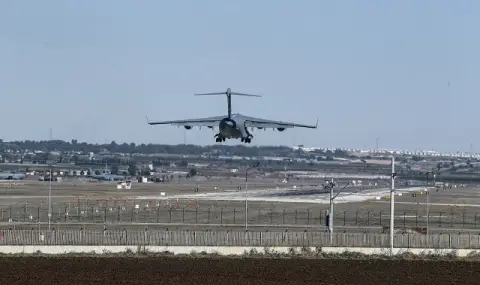Western media comment today the situation in the Middle East, in particular in Syria, after the long-time leader Bashar al-Assad was ousted from power.
Islamist organizations and fighters around the world have congratulated Syrian rebels on their victory over Bashar al-Assad's regime, ignoring their historic ideological differences and continuing uncertainty over how strictly the new rulers in Damascus will enforce religious restrictions and norms, the British newspaper said " Guardian".
Almost universal support for Hayat Tahrir al-Sham, the dominant faction among Syrian rebels, suggests that the group's fusion of national and religious ideology will serve as an additional example for other Islamists, the publication commented.
"The Muslim Brotherhood" looks at grouping as a management model. She is a savior for the nationalist Islamist project," Katrina Samour, an Amman-based analyst, told the Guardian.
"Can the Syrian rebels rebuild their ruined state after the overthrow of Assad?", headlines the American newspaper "Washington Post".
Most importantly, the rebels must allay public fears that they will try to replace Assad with their own form of absolute rule, the publication commented.
It is too early to say how the local governance model of "Hayat Tahrir al-Sham" will be implemented on a national scale as the organization expands its area of control from a small conservative Muslim enclave of Sunnis to a vast territory inhabited by many ethnicities, writes the Washington Post. The organization is expected to appoint cabinet members today - a key test of whether the group will live up to its promises of pluralism, the newspaper added.
"Hayat Tahrir al-Sham" will have to show that it is ready to provide political representation to the various minorities in Syria, as well as to the many rebel groups that contributed to the fall of Assad, the publication believes.
Also, "Washington Post" draws attention to Iranian leader Ayatollah Ali Khamenei, who said that "the main organizer, the main agent and the main control room are in the United States and the Zionist regime", implying that the US and Israel are to blame for the fall of the Assad regime.< /p>
The newspaper notes that some parts of Ali Khamenei's address were in "rare harmony" with Israeli Prime Minister Benjamin Netanyahu's statements regarding the overthrow of Assad.
Assad's fall is a historic blow to Iran as it cuts supply lines to "Hezbollah" - the Lebanese armed group that was once the most powerful member of the "axis of resistance" - the Tehran-backed alliance of militias, the publication writes. After spending billions of dollars supporting armed groups from Gaza to Yemen for decades, Iran has watched its strongest and most prominent members of its alliance suffer heavy losses this year, the newspaper commented.
The rapid collapse of the Assad government and the resulting power vacuum have led to new battles between armed groups in the country, writes the "New York Times".
After the fall of Assad, US representatives began diplomatic efforts to promote stability in Syria, the publication commented, adding that efforts are becoming more complicated as "Hayat Tahrir al-Sham" has been declared a terrorist group by the United States and the United Nations.
According to UN experts, the Israeli attacks on Syria after the overthrow of Bashar Assad violate international law, adds the German magazine "Spiegel". It quoted UN special rapporteur for the promotion of human rights, Ben Saul, who said there was "absolutely no basis in international law for preemptively disarming a country you don't like.
"If this were not the case, it would be a recipe for global chaos," he said, quoted by "Spiegel".
The European edition of the magazine "Politico" points out that many European politicians have already stated that they want Syrians living in Europe to return to their homeland. With the rise of far-right forces in Europe and the upcoming elections in Germany, increasingly anti-immigration forces in Europe see an opportunity to "fight back" with the refugee flow of 2015 and 2016, which was largely caused by the war in Syria, commented the publication.
It recalls that just a day after rebel forces ousted the Syrian dictator, a number of European countries - Belgium, Germany, Greece, Italy, the Netherlands and Great Britain - said they would stop processing asylum applications from Syrians.
p>
Across Europe, Syrians expressed similar sentiments - a mix of joy at the fall of Assad, worries about the country's future and frustration with much of Europe's political discussion on refugees, writes "Politico".
